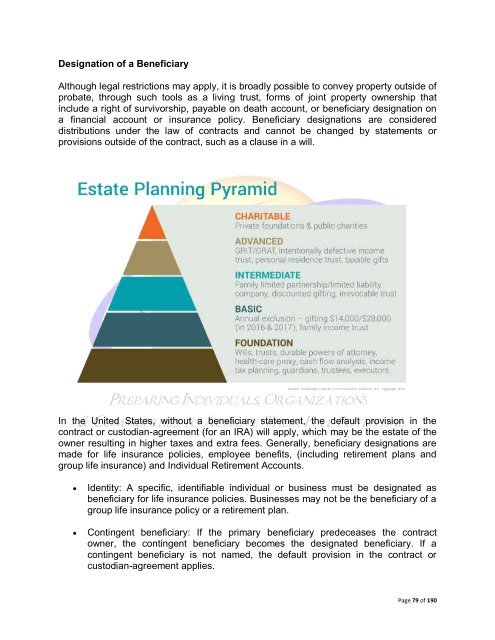Wills, Trusts & Estates
Wills, Trusts & Estates
Wills, Trusts & Estates
Create successful ePaper yourself
Turn your PDF publications into a flip-book with our unique Google optimized e-Paper software.
Designation of a Beneficiary<br />
Although legal restrictions may apply, it is broadly possible to convey property outside of<br />
probate, through such tools as a living trust, forms of joint property ownership that<br />
include a right of survivorship, payable on death account, or beneficiary designation on<br />
a financial account or insurance policy. Beneficiary designations are considered<br />
distributions under the law of contracts and cannot be changed by statements or<br />
provisions outside of the contract, such as a clause in a will.<br />
In the United States, without a beneficiary statement, the default provision in the<br />
contract or custodian-agreement (for an IRA) will apply, which may be the estate of the<br />
owner resulting in higher taxes and extra fees. Generally, beneficiary designations are<br />
made for life insurance policies, employee benefits, (including retirement plans and<br />
group life insurance) and Individual Retirement Accounts.<br />
<br />
<br />
Identity: A specific, identifiable individual or business must be designated as<br />
beneficiary for life insurance policies. Businesses may not be the beneficiary of a<br />
group life insurance policy or a retirement plan.<br />
Contingent beneficiary: If the primary beneficiary predeceases the contract<br />
owner, the contingent beneficiary becomes the designated beneficiary. If a<br />
contingent beneficiary is not named, the default provision in the contract or<br />
custodian-agreement applies.<br />
Page 79 of 190

















